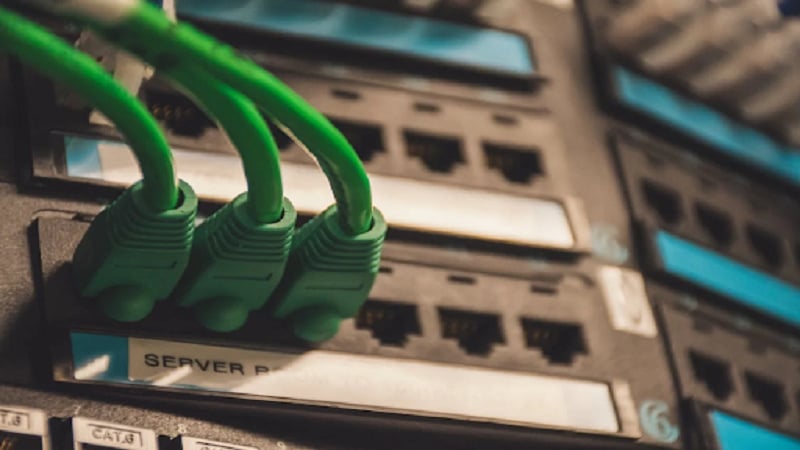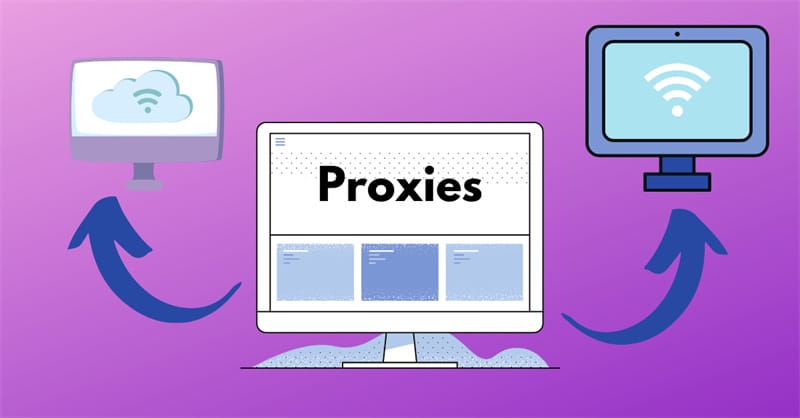
In the modern era, businesses have become heavily reliant on the internet to conduct their day-to-day operations.
However, with the increasing number of cyber threats and attacks, it has become vital for businesses to take measures to secure their online activities. A proxy server can be a powerful tool in achieving this goal.
A proxy server operates as a gateway between a business's computer and the internet, adding an extra layer of security and privacy to online activities. By using a proxy server, businesses can protect their sensitive data, control employee internet usage, and access restricted content from different geographic locations.
In this article, we will delve deeper into the benefits of using a buy proxy vietnam for businesses. We will explore how a proxy server can help businesses maintain their online security and privacy, as well as how to set up and use a proxy server in a step-by-step guide. By the end of this article, businesses will have a clear understanding of the advantages of using a proxy server and how to implement one in their operations.
Benefits of using a proxy server for businesses

Using a proxy server for your business has numerous benefits, including:
- Enhanced security. A proxy server acts as a filter between your business's computer and the internet, providing an extra layer of security. With a proxy server, your business's IP address is hidden, making it harder for hackers to target your network. Additionally, a proxy server can filter out malicious traffic and prevent malware from infecting your devices.
- Improved network performance: Proxy servers can help improve your business's network performance by caching frequently accessed websites and files. This can speed up the loading time of web pages, reduce bandwidth usage, and improve overall network performance.
- Control over internet usage: A proxy server can give your business greater control over its internet usage. With a proxy server, you can block access to certain websites, limit bandwidth usage, and monitor employee internet activity. This can help reduce the risk of employees accessing inappropriate content or wasting time on non-work-related activities.
- Access to geographically restricted content: With a proxy server, your business can access geographically restricted content that may not be available in your country. This can be particularly useful for businesses that need to access websites or services that are only available in specific regions.
Using a proxy server for your business can help improve security, network performance, and control over internet usage. Additionally, it can provide access to geographically restricted content, making it an essential tool for businesses operating in today's digital age.
How to set up a proxy server for your business
Setting up a proxy server for your business is a straightforward process that can be completed in a few simple steps. Here's how to do it:
- Choose the right type of proxy server: There are several types of proxy servers, including HTTP, HTTPS, and SOCKS proxies. Determine which type of proxy server is best suited for your business's needs.
- Choose a provider: You can set up your own proxy server or use a provider that offers proxy server services. If you choose to use a provider, research different options and choose one that offers the features you need at a reasonable price.
- Configure the proxy server: Once you've chosen a provider or set up your own proxy server, you'll need to configure it. This involves setting up the server to filter traffic, log activity, and perform other tasks as needed.
- Configure your devices: After configuring the proxy server, you'll need to configure your devices to connect to it. This involves changing the settings on each device to use the proxy server for internet connections.
- Test the connection: Once everything is set up, test the connection to ensure it's working correctly. Test for internet connectivity, speed, and security to ensure the proxy server is performing as expected.
By following these steps, you can set up a proxy server for your business and start enjoying the benefits of enhanced security, improved network performance, and greater control over internet usage.
Best practices for using a proxy server in a business environment
While using a proxy server can provide significant benefits for businesses, it's important to follow best practices to ensure that it's being used effectively and efficiently. Here are some best practices to keep in mind:
- Create a proxy usage policy: Establish clear guidelines and rules for how the proxy server should be used by employees. This can include what types of sites can be accessed, how much bandwidth can be used, and how the server should be monitored.
- Monitor usage: Regularly monitor proxy server usage to ensure that it's being used properly and to identify any potential issues. This can also help you optimize the server's settings for better performance.
- Implement proper security measures: While a proxy server can enhance security, it's still important to implement proper security measures such as strong passwords, regular updates, and secure connections.
- Regularly review and update settings: As your business evolves and your needs change, it's important to review and update your proxy server settings to ensure that it's still meeting your needs and providing optimal performance.
By following these best practices, you can ensure that your business is using a proxy server effectively and efficiently to improve security, performance, and productivity.
Types of Proxy Servers for Businesses

There are various types of proxy servers that businesses can use to secure their online activities. Here are some of the most popular types:
- Web Proxy Servers: A web proxy server is a type of proxy server that focuses on web traffic. When a user requests a website, the request is sent to the web proxy server, which then retrieves the website and sends it back to the user. Web proxy servers can be used to filter out unwanted content, block certain websites, and protect against malicious websites.
- Forward Proxy Servers: A forward proxy server is a proxy server that is used by clients to access resources from a server. When a client makes a request, it is sent to the forward proxy server, which then forwards the request to the server. Forward proxy servers can be used to access content that is not available in a certain region or to bypass internet censorship.
- Reverse Proxy Servers: A reverse proxy server is a proxy server that sits between the internet and a server. When a user makes a request, it is sent to the reverse proxy server, which then forwards the request to the server. Reverse proxy servers can be used to load balance traffic, improve website performance, and protect against DDoS attacks.
- Transparent Proxy Servers: A transparent proxy server is a proxy server that does not require any configuration by the client. It intercepts all traffic and redirects it through the proxy server. Transparent proxy servers can be used to monitor internet usage and enforce internet policies.
By understanding the different types of proxy servers, businesses can choose the one that best suits their needs and provides the most effective security and privacy measures. In the next section, we will discuss how to set up a proxy server for your business.
Summary
In summary, businesses heavily rely on the internet to carry out day-to-day operations. However, with the increasing number of cyber threats and attacks, it has become essential for businesses to secure their online activities.
A Proxy Server PS5 can provide a powerful tool in achieving this objective by operating as a gateway between a business's computer and the internet, adding an extra layer of security and privacy to online activities. Moreover, it provides businesses with control over internet usage, improved network performance, and access to geographically restricted content.
Although setting up a proxy server is a straightforward process, businesses must establish guidelines for how the server should be used by employees, monitor usage, implement proper security measures, and regularly review and update settings. Ultimately, using a proxy server can improve a business's security, performance, and productivity.










